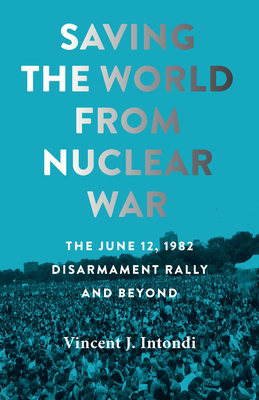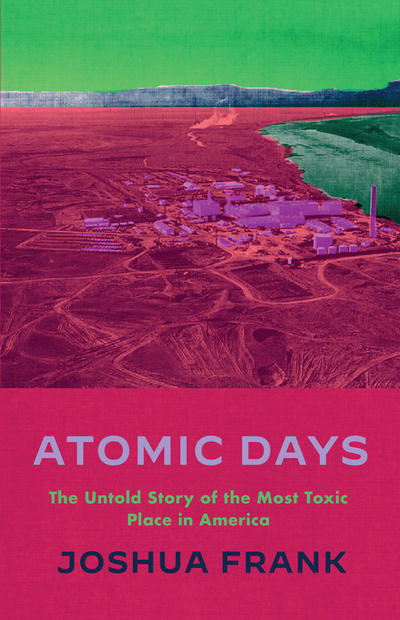March 2023 Books of Note
March 2023
 Saving the World from Nuclear War: The June 12, 1982, Disarmament Rally and Beyond
Saving the World from Nuclear War: The June 12, 1982, Disarmament Rally and Beyond
By Vincent J. Intondi
March 2023
Vincent J. Intondi’s book reexamines the historic rally in June 1982, which demonstrated support for the UN second special session on disarmament by calling for nuclear disarmament and a transfer of federal spending from military budgets to programs meeting human needs. The author puts people of color, gays, and women in the spotlight by showcasing their participation as key organizers of the landmark event. Drawing on archival material and interviews with organizers and activists, the author casts new light on the nuclear disarmament movement and challenges the common assertion that its origins lay largely within the white and middle-class communities. He analyzes what factors led the demonstration to be so successful and the catalysts that brought together people from across the political spectrum, including celebrities and atomic bomb survivors, in common cause.
The book reflects on the rally’s legacy, the path forward and the lessons that can be learned from June 12, 1982. Intondi notes that the movement in the 1980s was organized through fear and hope. He makes the case that nuclear disarmament should be combined with other issues and highlights how 1980s-era activists came to understand that communal challenges from the AIDS epidemic to the war on drugs are connected to nuclear weapons. As Intondi underscores, the activists realized that it did not matter to achieve social justice if they were dead from nuclear war, and that truth still holds today.—GABRIELA ROSA HERNÁNDEZ

Atomic Days: The Untold Story of the Most Toxic Place in America
By Joshua Frank
Haymarket Books
January 2023
Author Joshua Frank focuses on the Hanford Nuclear Reservation along the Columbia River in Washington state, the largest U.S. plutonium manufacturing complex, as a case study of the catastrophic impact that the nuclear weapons industry has had on humans, communities, cultures, workers, and ecosystems. His detailed yet conversational narrative records the experiences of the nuclear industry’s victims at the site. This history ranges from the colonization of indigenous land to decades-long exposure to radioactive waste.
The book also explores several controversies surrounding the clean-up plan for the site, the most expensive environmental remediation project to date. Frank portrays a conflict that has managers and profiteers of the project, including companies such as Bechtel, on one side and whistleblowers, concerned scientists, and indigenous leaders on the other. The author questions whether the benefits of using nuclear power as a means of combating climate change outweigh the costs, considering the massive carbon emissions associated with nuclear mining, the risks of nuclear facilities coming under attack, and the possibility of nuclear proliferation leading to weaponization. Lastly, Atomic Days warns of Hanford’s uncertain future, which Frank speculates could be a “Chernobyl-like disaster-in-waiting.” He calls for immediate action to address the issue.—CHRIS ROSTAMPOUR
